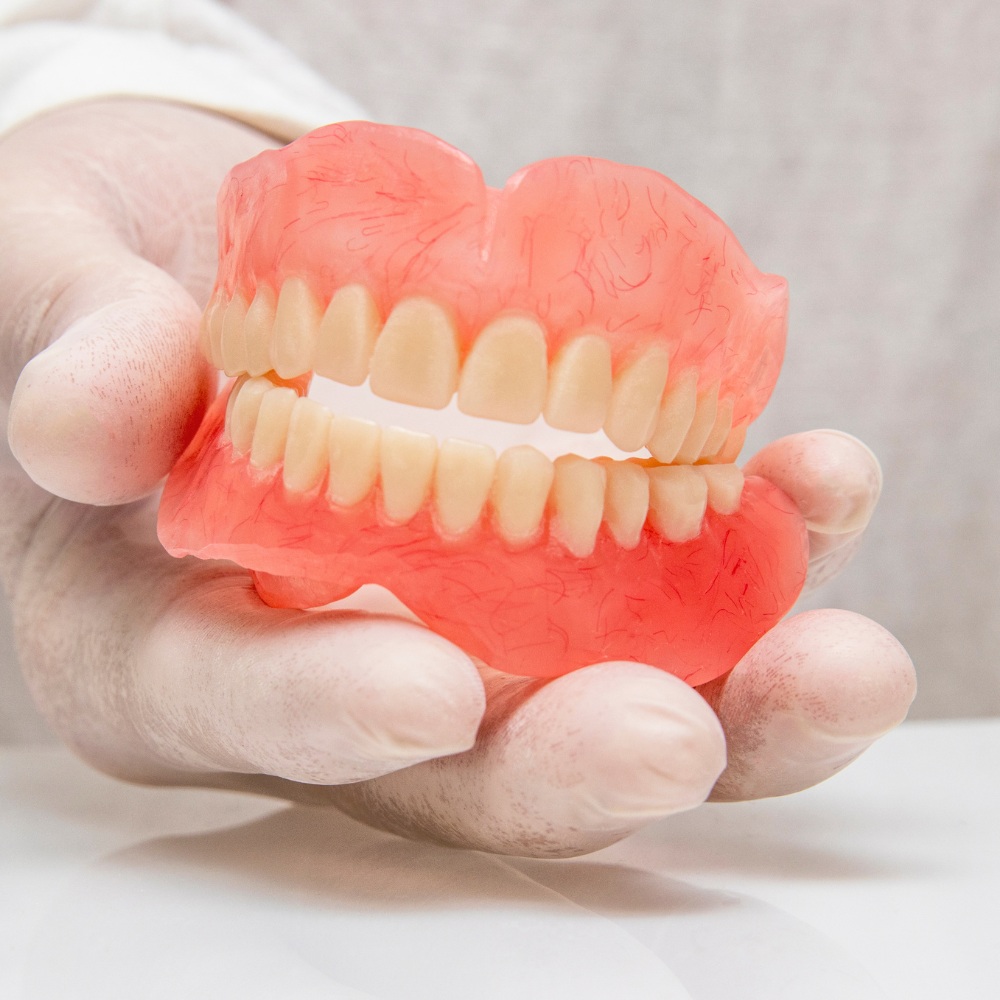Implant-retained dentures are a modern dental solution that has gained popularity for their ability to provide stability and comfort compared to traditional dentures. In this blog post, we’ll explore what implant-retained dentures are, how they work, the benefits they offer, the procedure to get them, and what to expect during recovery.
What Are Implant-Retained Dentures?

Implant-retained dentures are supported by dental implants. Unlike traditional dentures, which rest on the gums and can sometimes slip or cause discomfort, implant-retained dentures are anchored securely in the jawbone, providing a more stable and comfortable fit.
How They Work
Dental implants are small titanium posts that are surgically placed into the jawbone. These implants act as artificial tooth roots, providing a strong foundation for the dentures. The dentures themselves are then attached to the implants, either permanently or in a way that allows them to be removed for cleaning.
Benefits of Implant-Retained Dentures
Improved Stability
One of the most significant advantages of implant-retained dentures is their stability. Traditional dentures can shift and move, making eating and speaking difficult. Implant-retained dentures, however, stay firmly in place, allowing for more natural and comfortable use.
Enhanced Comfort
Because they are anchored to the jawbone, implant-retained dentures do not press on the gums as traditional dentures do. This reduces the likelihood of sore spots and irritation, making them more comfortable for daily wear.
Better Functionality
Implant-retained dentures restore a greater degree of chewing efficiency compared to traditional dentures. This means you can enjoy a wider variety of foods without worrying about your dentures slipping or causing discomfort.
Bone Preservation
Dental implants help stimulate the jawbone, preventing the bone loss that often occurs with traditional dentures. This bone preservation helps maintain the natural shape of your face and jaw, contributing to a more youthful appearance.
The Procedure
The process for getting implant retained dentures is relatively straightforward, including:
- Initial Consultation
The first step in getting implant retained dentures is an initial consultation with a dental professional like Dr. Patel at Contour Dentistry. During this visit, the dentist will evaluate your oral health, take X-rays, and discuss your treatment options. They will also determine if you are a good candidate for dental implants.
- Treatment Planning
If you are a suitable candidate, the dentist will create a detailed treatment plan. This plan will outline the number of implants needed, the type of dentures that will be used, and the timeline for the procedure. In some cases, additional treatments such as bone grafting may be necessary to ensure there is enough bone to support the implants.
- Implant Placement
The next step is the surgical placement of the dental implants. This is typically done under local anesthesia, although sedation options are available for those who need them. The dentist will make small incisions in the gums and insert the titanium implants into the jawbone. Once the implants are in place, the gums are stitched closed, and the healing period begins.
- Healing and Osseointegration
The healing period, known as osseointegration, is crucial for the success of the implants. During this time, the jawbone grows around the implants, securing them firmly in place. This process can take several months but is essential for stability and longevity.
- Attaching the Dentures
Once osseointegration is complete, the dentist will attach the dentures to the implants. This can be done a few different ways, depending on the type of implant-retained dentures you are getting. Some dentures snap onto the implants, while others are screwed in place for a more permanent solution.
Types of Implant-Retained Dentures
Bar-Retained Dentures
Bar-retained dentures involve the placement of a thin metal bar that follows the curve of your jaw. This bar is attached to the implants, and the dentures are then clipped onto the bar. This type of denture offers excellent stability and can be removed for cleaning.
Ball-Retained Dentures
Ball-retained dentures, also known as stud-attachment dentures, use ball-shaped attachments on the implants that fit into sockets on the dentures. This type of attachment provides a secure fit while allowing the dentures to be easily removed for cleaning and maintenance.
Fixed Implant Retained Dentures
Fixed implant retained dentures, also known as permanent dentures, are screwed directly onto the implants and can only be removed by a dentist. This option offers the highest level of stability and functionality, closely mimicking the feel and performance of natural teeth.
Comparing Implant-Retained Dentures to Traditional Dentures
Consider the following factors when comparing implant-retained dentures to traditional dentures:
- Stability and Comfort: Implant-retained dentures offer superior stability and comfort compared to traditional dentures. Because they are anchored to the jawbone, they do not shift or move, reducing the risk of sore spots and discomfort.
- Functionality: With implant-retained dentures, you can enjoy a more varied diet and chew more efficiently. Traditional dentures often limit the types of foods you can eat and can make chewing difficult.
- Longevity: Implant-retained dentures typically last longer than traditional dentures. The implants themselves can last a lifetime with proper care, while the dentures may need to be replaced or adjusted periodically.
- Cost: While implant retained dentures are more expensive upfront than traditional dentures, they can be a more cost-effective solution in the long run. Traditional dentures often require adjustments, replacements, and special adhesives, while implant-retained dentures provide a more permanent and stable solution.
Ready to schedule a consultation? Give us a call today!
If you’re considering implant-retained dentures, the first step is to consult with a dentist who can evaluate your oral health and determine if you are a suitable candidate. Dr. Patel and his team at Contour Dentistry are here to help answer any questions and get you on the right path for treatment. With proper care and maintenance, implant-retained dentures can provide a long-lasting and effective solution for missing teeth.
Call us today for a consultation!
